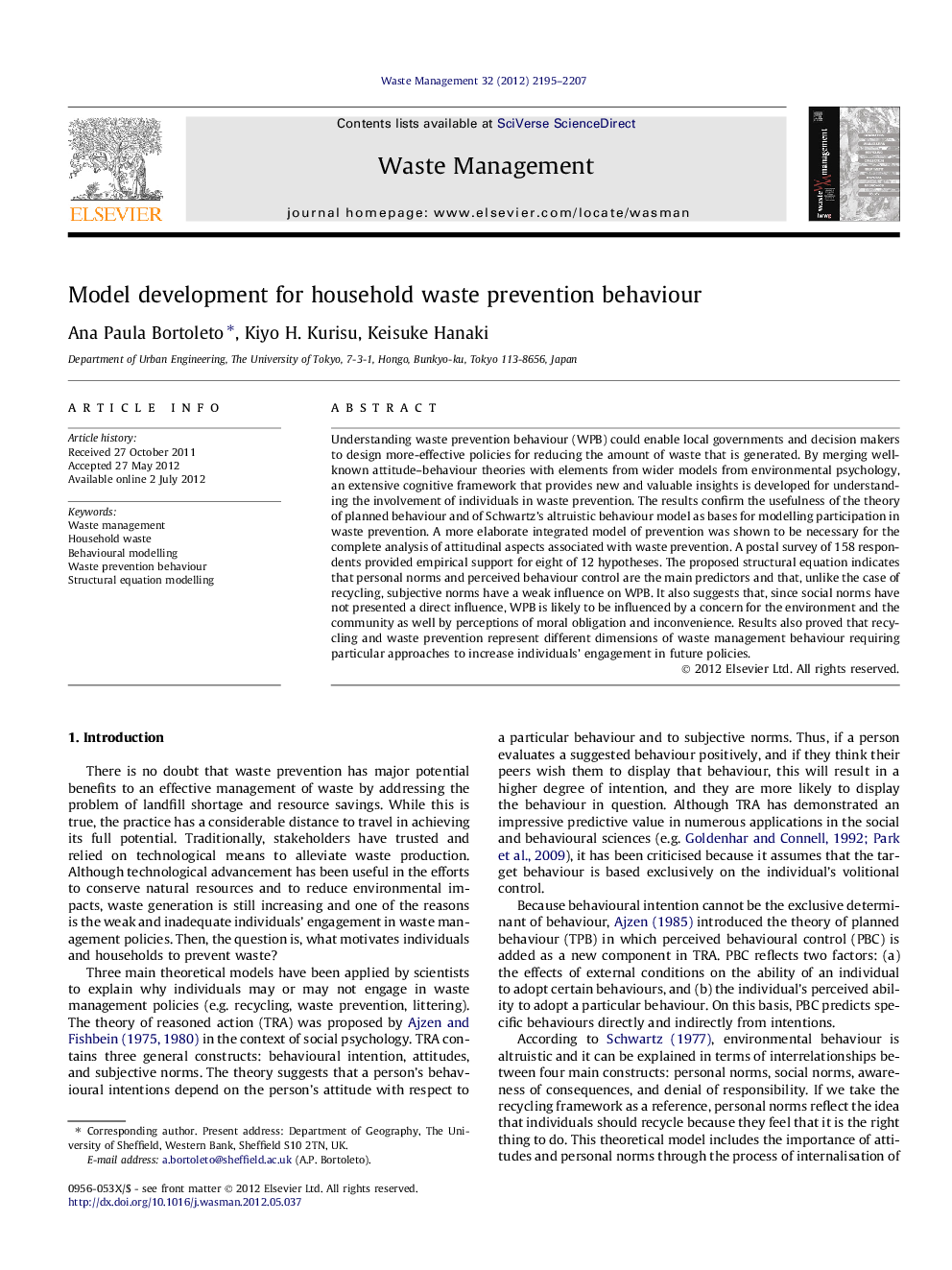| کد مقاله | کد نشریه | سال انتشار | مقاله انگلیسی | نسخه تمام متن |
|---|---|---|---|---|
| 4472196 | 1315061 | 2012 | 13 صفحه PDF | دانلود رایگان |

Understanding waste prevention behaviour (WPB) could enable local governments and decision makers to design more-effective policies for reducing the amount of waste that is generated. By merging well-known attitude–behaviour theories with elements from wider models from environmental psychology, an extensive cognitive framework that provides new and valuable insights is developed for understanding the involvement of individuals in waste prevention. The results confirm the usefulness of the theory of planned behaviour and of Schwartz’s altruistic behaviour model as bases for modelling participation in waste prevention. A more elaborate integrated model of prevention was shown to be necessary for the complete analysis of attitudinal aspects associated with waste prevention. A postal survey of 158 respondents provided empirical support for eight of 12 hypotheses. The proposed structural equation indicates that personal norms and perceived behaviour control are the main predictors and that, unlike the case of recycling, subjective norms have a weak influence on WPB. It also suggests that, since social norms have not presented a direct influence, WPB is likely to be influenced by a concern for the environment and the community as well by perceptions of moral obligation and inconvenience. Results also proved that recycling and waste prevention represent different dimensions of waste management behaviour requiring particular approaches to increase individuals’ engagement in future policies.
► We model waste prevention behaviour using structure equation modelling.
► We merge attitude–behaviour theories with wider models from environmental psychology.
► Personal norms and perceived behaviour control are the main behaviour predictors.
► Environmental concern, moral obligation and inconvenience are the main influence on the behaviour.
► Waste prevention and recycling are different dimensions of waste management behaviour.
Journal: Waste Management - Volume 32, Issue 12, December 2012, Pages 2195–2207